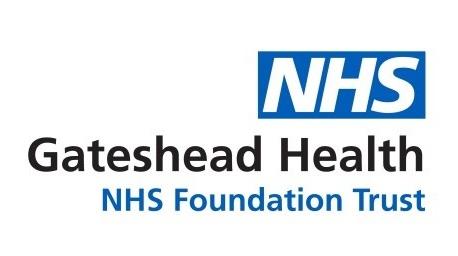


Poverty Proofing© a children's diabetes service
Gateshead Health NHS Foundation Trust (Gateshead Health) is a combined acute and community trust located in the North East of England. The trust has applied a novel intervention to improve the accessibility of their children and young people's diabetes service and to improve health outcomes for children living in poverty, working in collaboration with the Child Health and Wellbeing Network and the North East and North Cumbria (NENC) Children and Young Persons (CYP) Diabetes Network.
One third (33.4%) of children and young people in Gateshead live in poverty, compared to 29% of children nationally. 42% of children and young people living with diabetes in Gateshead live in the most deprived quintile, based on analysis of their postcodes. In 2022/23, Gateshead Health Children and Young Persons (CYP) diabetes team worked with Children North East to poverty proof their paediatric diabetes service – representing the first healthcare service to adopt this approach. Poverty Proofing© in this context was defined as: "No activity or planned activity within a paediatric diabetes team should identify, exclude, treat differently or make assumptions about those babies, children, young people and families whose income is lower than others."
This involved in-depth consultation with staff, children and families, via surveys and interviews, to understand patient experiences and the barriers faced by those experiencing poverty. Training was provided to all staff in the CYP diabetes team on the impact of poverty on health, accessibility of health services and empathy for families. The research culminated in a report and list of recommendations for Gateshead Health on how to improve their diabetes service for children and families experiencing poverty. Positive feedback from patients revealed outstanding quality of care and promotion of healthy behaviours to support diabetes management.
Findings from the research revealed areas for improvement, which are relevant across all NHS trusts and services:
- Direct costs of transport to get to clinical appointments and indirect costs (lost earnings, childcare for siblings).
- Problematic timing of clinic appointments.
- Access to technology or other equipment to support self-management of health conditions.
- Consideration of special dietary requirements within health settings.
- Specific difficulties in applying for disability and carers' welfare benefits.
Gateshead Health have implemented a range of measures in their paediatric diabetes service to mitigate against these barriers. A QR code directory of national and local services has been developed to support social prescribing for children and young people's health across paediatric services. This is provided alongside guidance for families on how to access financial support and welfare benefits. Free fruit and sugar free juice are available in the clinic waiting room for all patients. Following the training, staff now feel more confident to discuss these broader issues with families.
Diabetes is one of the five clinical priorities identified in NHS England's (NHSE) Core20PLUS5 framework for children and young people. NHSE provided funding and metrics for demonstrating improvement in reducing inequalities in diabetes care for children and young people – "increase access to real-time continuous glucose monitors and insulin pumps in the most deprived quintiles and from ethnic minority backgrounds".
Difficulties accessing diabetes technology were raised in the Poverty Proofing© research and the NENC CYP Diabetes network estimated that 400 local families could benefit from access to a mobile phone to use technologies to improve their diabetes care. In response, Gateshead Health worked with their head of digital solutions and technical services, the NENC CYP diabetes network manager and local voluntary and community sector (VCSE) partners (Town and Community and Investing in Children Type 1Kidz) to provide devices to families region wide.
Gateshead Health donated trust mobile phones and laptops, that had come to the end of their life within the NHS, to be repurposed for use by children and young people living with Type 1 Diabetes in the NENC region. In total, 400 phones and 25 laptops were repurposed for use and SIM cards were donated by Vodafone. Process pathways that meet NHS safety and data security requirements were developed to support the roll out of technologies. Type 1 Kidz were responsible for project delivery to patients and families and for management of data collection.
As of August 2023, six months into the project, 160 families had been provided with a suitable device, with 70% of these families living in areas that are ranked as being in the top 30% of the most deprived areas in the country. Feedback on the scheme has been overwhelmingly positive. Increased use of continuous glucose monitoring, connection with automated insulin delivery pumps and downloading real-time data has enabled patients and families to self-manage, improve their health outcomes and quality of life. Use of technologies has also supported clinical staff to provide better support for children, young people and families, through providing remote advice and increasing efficiency in clinics.
This allows staff at the respite home to leave the phone outside his room to check his levels so as not disturbing him. The staff at school can now look at the phone on the teacher's desk rather than approaching him. Parents have the follow up app and can monitor his levels from home. This phone has benefited my patient and his carers in so many ways.
North Tees and Hartlepool NHS Foundation Trust
The approach to poverty proof healthcare services is now being applied in other health services, such as NHS trusts in Hull and Grimsby, and the Poverty Proofing© paediatric diabetes training has been expanded and delivered to 210 children and young people diabetes healthcare professionals across the North East and Yorkshire region.
For more information on Gateshead Health's children and young people's diabetes service, please contact Dr Judith Reid (children and young people's diabetes service lead, Gateshead Health NHS Foundation Trust): judith.reid4@nhs.net
Next